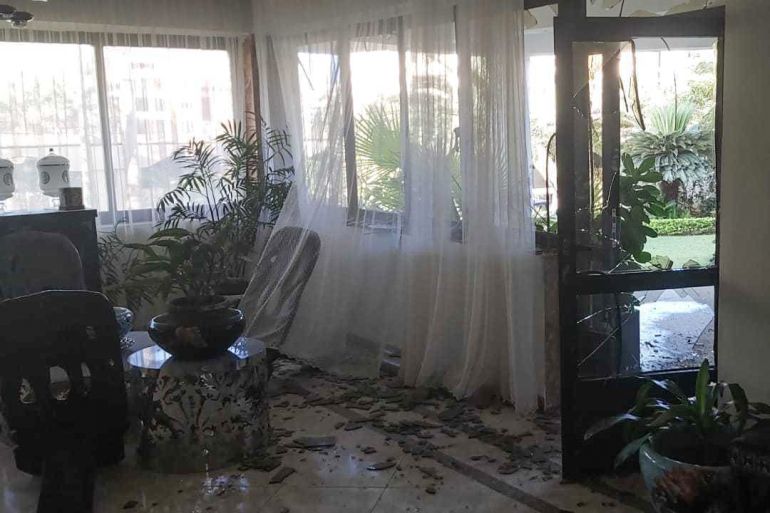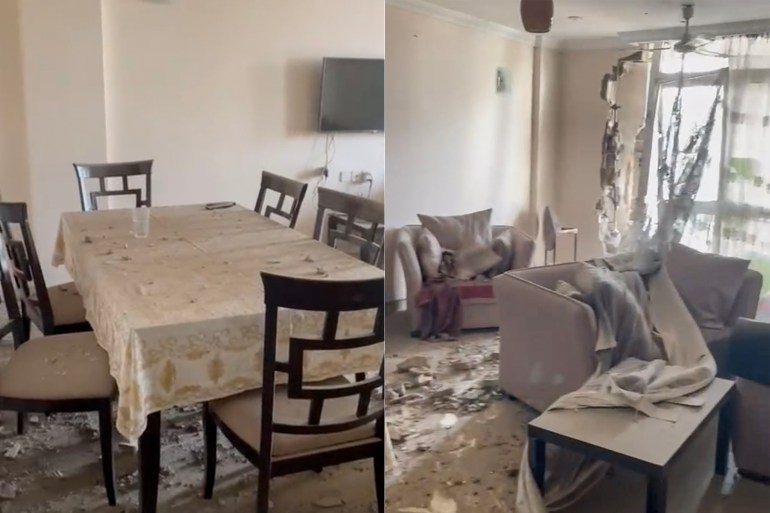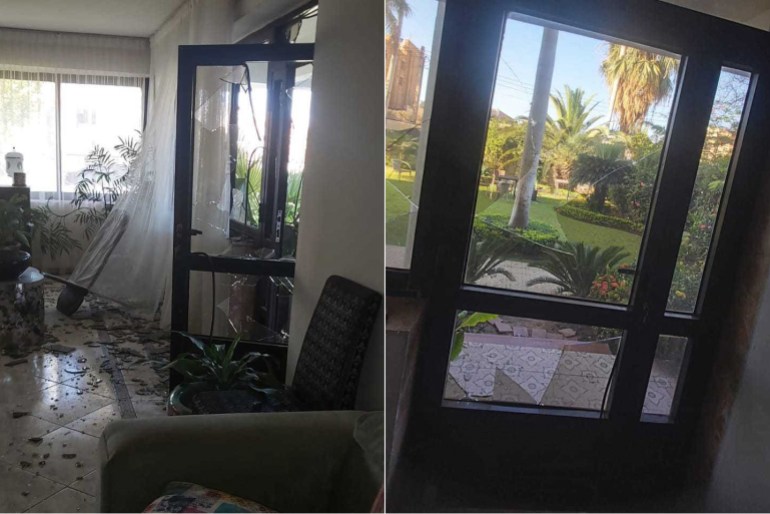‘Hostages and human shields’: The civilian toll of Sudan’s crisis
Residents of Khartoum describe going days without electricity and water as fighting rages around them.

Khartoum, Sudan – Majid Maali, 39, was excited to return to his home country, Sudan, on April 5. For the past 14 years, he had been based in Uganda, where he worked as a capacity-building officer for the East and Horn of Africa Human Rights Defenders Project, an organisation that protects and promotes human rights defenders in the region.
He had returned to Khartoum to set up an office for the organisation there and was looking forward to spending time with friends and visiting his family in Darfur.
Keep reading
list of 3 itemsSudan fighting in its ninth day: Here is a list of key events
Sudan doctors caught in fighting recount horrors at hospitals
Ten days later, that all changed.
Maali was staying with a friend in a Khartoum neighbourhood just west of where he lives when he got a call from someone in his building. That morning, fighting had broken out between Sudan’s army, headed by General Abdel Fattah al-Burhan, and the paramilitary Rapid Support Forces (RSF), headed by General Mohamed Hamdan “Hemedti” Dagalo. The caller told Maali that his apartment had been bombed.
“I couldn’t go right away as the clashes were intense,” he said. When Maali eventually managed to reach his apartment late that afternoon he “found a really bad situation”.

When he opened the door to his apartment, he discovered that the balcony had been blown out. Broken glass and shattered furniture lay all over the living room floor. The kitchen and bedrooms had also been damaged.
He quickly packed some of his belongings and is now staying in a rented apartment not too far from his place with friends who were also forced to leave their homes.
“We’ve been here for days with no electricity, no water,” he said. “We sleep and wake up to the sounds of gunfire and explosions and can’t leave, even to get basic needs.”
‘A nightmare’
Maali’s story is not unique as Sudan endures fighting that the United Nations said has killed more than 400 people and injured about 3,000 since it started on April 15.
People in Khartoum are experiencing electricity and water outages, and petrol stations and supermarkets are running out of supplies. As living conditions deteriorate, civilians are scrambling to find safe ways to escape the city.

Moneim Algash is a 55-year-old businessman and activist with the grassroots resistance committees whose family home in Khartoum’s Garden City was damaged by shelling. He said the violence shows that the warring parties do not care for the safety of civilians.
The army has conducted air raids on camps belonging to the RSF. The camps are scattered throughout Khartoum, including in residential areas.
“Over the past four years, many parties, including the resistance committees [neighbourhood groups at the forefront of Sudan’s pro-democracy movement] have been warning that setting up RSF camps near [residential] neighbourhoods is very serious and will lead to fighting between the armies,” Algash said, adding: “I hold the two warring parties responsible as well as the political parties.
“It’s brutal. They’re using civilians as hostages and human shields. We have nothing to do with the power struggle between these two, especially since they’re both against the revolution that overthrew the dictator Omar al-Bashir in 2019.”
Algash said he is afraid that “unless they can contain this war quickly, it will become a very big humanitarian crisis”.
“It will be a nightmare not just for Sudan but also for the international community,” he said.
“Sudan is already very fragile. I’m afraid that we are expecting worse scenarios.”